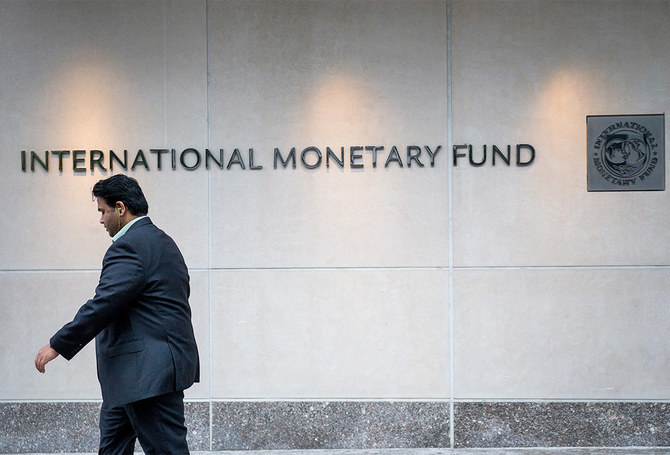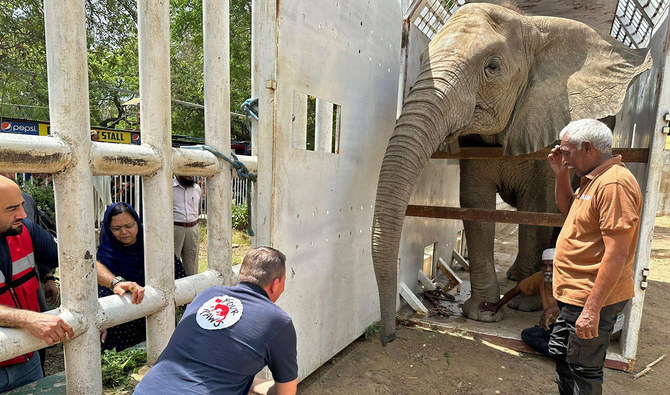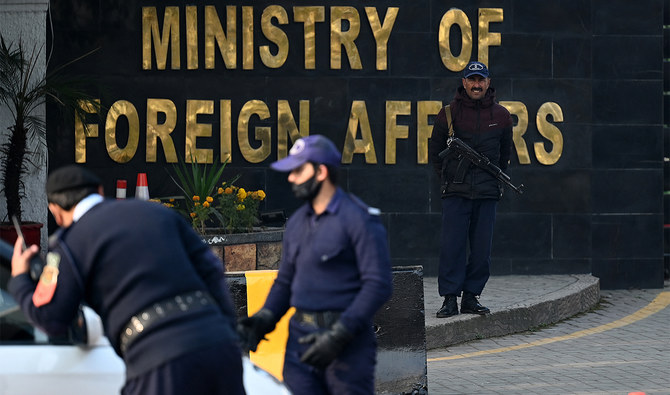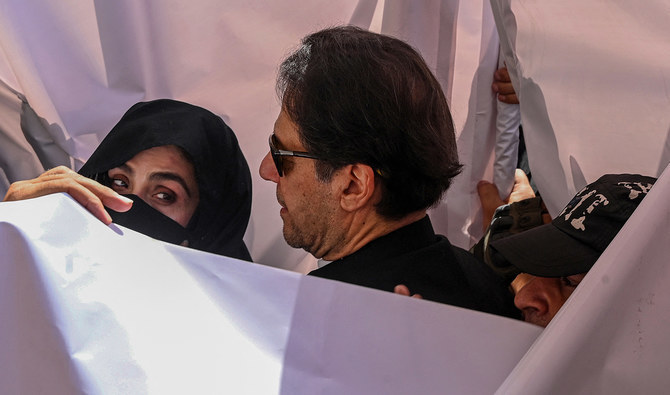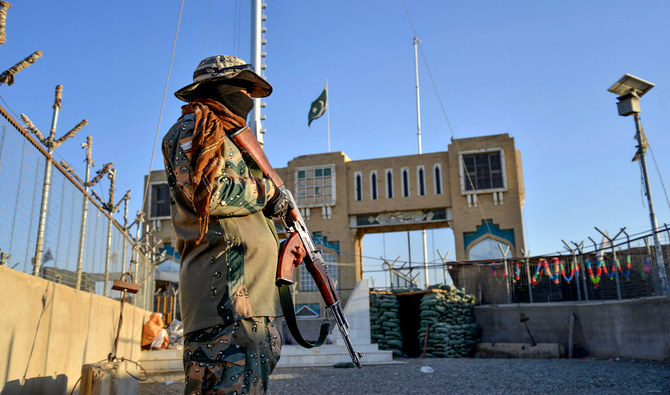KARACHI: Pakistan’s finance minister Miftah Ismail on Friday said the country’s deal with the International Monetary Fund (IMF) to revive its $6 billion loan program would be materialized, despite the withdrawal of key condition of provincial surplus by the Khyber Pakhtunkhwa government.
Ismail said this at a hurriedly called press conference late Friday, after Taimur Khan Jhagra, finance minister of the northwestern Khyber Pakhtunkhwa (KP) province, expressed his government’s inability to meet the provincial surplus requirement of the Fund.
In his letter written to Ismail on Friday, Jhagra said the KP administration might find it difficult to run a provincial surplus this year in view of devastation caused by massive floods in the province, which the ruling coalition in the center described as a “ploy to plunge Pakistan into a flood of economic crisis.”
“It was not the time to write the letter ahead of the IMF meeting and play politics,” Ismail said at the press conference, expressing confidence that the deal would not be “derailed and will conclude successfully.”
The IMF executive board meeting for the revival of the $6 billion loan program is scheduled for Monday and if approved, it would pave the way for disbursement of $1.2 billion to Pakistan.
Ismail lamented that the letter was written and widely publicized ahead of the IMF meeting, instead of waiting for a few days.
“I feel sorry that my brother Taimur Jharga has written the letter today, Friday evening, and in the subject he has written ‘provincial surplus in the IMF MoU’,” Ismail said.
“He has written that if you will not resolve our six, seven issues, then the surplus, which is the prior condition of the IMF, could not be given.”
In July, Pakistan had agreed with the IMF to present a memorandum of understanding (MoU), signed by provincial governments, to jointly provide around Rs750 billion ($339 million) cash surplus to the center. The KP provincial government, which is run by the opposition Pakistan Tehreek-e-Insaaf (PTI) party in the center, had also signed the MoU.
However, the federal finance minister said the timing of the letter and the statement of Chaudhry Fawad Hussain, former information minister in ousted Prime Minister Imran Khan’s cabinet, could adversely impact the IMF deal.
“The letter written by Jhagra and the open statement given by Fawad Chaudhry on TV that ‘Punjab and KP will not cooperate with federal government and the IMF deal will be broken’ could adversely impact the IMF deal,” Ismail told reporters in Islamabad.
“Shaukat Tarin also activated and they have asked Punjab to write a letter too, but perhaps they (Punjab administration) have refused.”
The federal finance minister said the KP government’s letter might as well have reached the IMF after widespread circulation. He, however, was confident the IMF deal would be materialized.
When contacted by Arab News, KP finance minister Jhagra denied he had written to the IMF and said issues were only raised with the federal finance minister.
“I have written of our issues to the finance minister in Islamabad only,” Jhagra told Arab News late Friday.
In the letter, Jhagra said the MoU was signed within 24 hours on the directions of the chief minister in the larger national interest, but he was unable to get time to meet officials.
“We did this in the larger national interest. However, in contrast to this, in the intervening period of almost two months, we have been unable to get time to meet with either the minister or the secretary even once,” the letter read.
In his letter, Jhagra listed four key issues, including the resolution of budget allocations for erstwhile federally administered tribal areas (FATA), monthly transfers of Net Hydel Profits as per terms specified in an MoU signed between the federal and provincial governments in 2016, and the immediate revival of the National Finance Commission award.
The KP finance minister mentioned the impact of monsoon rains and floods and said it would be “next to impossible” for the province to actually leave a surplus under these conditions and without the resolution of the issues highlighted previously.
Pakistani financial experts, however, believe the letter written by the KP finance minister would not impact the IMF deal.
“I don’t think,” Muhamamd Sohail, CEO of Karachi-based Topline Securities brokerage firm, told Arab News. “IMF deals with the federal government and one province’s issue does not make any major effect.”



